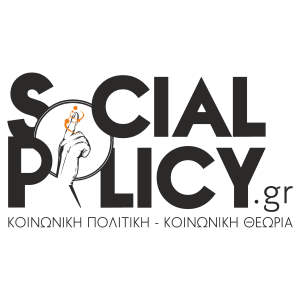Βραβείο 2021

Βραβείο 2022

Στρατηγικός συνεργάτης

Υποστηρικτές Επικοινωνίας


Open access article: https://journals.sagepub.com/doi/full/10.1177/13623613241255811
Abstract
There is an increasing focus on research exploring autistic communication and community. In this review, we systematically collate and analyse how autistic adults describe their experiences of other autistic people and the relationship this has with their Quality of Life (QoL). Fifty two qualitative papers were analysed using thematic meta-synthesis. Results found many experiences of other autistic people were positive and were associated with improved QoL across a range of domains. The heterogeneity of the autistic experiences described indicates a need for further research to explore which factors predict a positive impact on QoL. Analysis also highlighted a paucity of data on autistic people with co-occurring intellectual disability in relation to this phenomenon. Implications for research and practice are discussed. Lay abstract Research has suggested that autistic people enjoy spending time with other autistic people and find them easier to talk to. We wanted to find out what autistic people say about spending time with other autistic people and whether this makes their life better. We found 52 papers which described this and reviewed what they found. We found that many autistic people had positive experiences of spending time with other autistic people and these experiences had positive impact on their lives in a range of different ways. The papers did not tell us whether this also happens for autistic people with a learning disability. More research is needed to find out more about why spending time with other autistic people helps some autistic people.
Citation: Watts, G., Crompton, C., Grainger, C., Long, J., Botha, M., Somerville, M., & Cage, E. (2024). ‘A certain magic’ – autistic adults’ experiences of interacting with other autistic people and its relation to Quality of Life: A systematic review and thematic meta-synthesis. Autism, 29(9), 2239-2253. https://doi.org/10.1177/13623613241255811 (Original work published 2025)
Open access article: https://journals.sagepub.com/doi/10.1177/27546330241233088?utm_source=researchgate.net&utm_medium=article
Abstract
Historically, autism research has focused on the overrepresentation of physical and mental health problems and decreased psychological well-being in autistic people without intellectual impairment. There is a paucity of studies emphasizing what positively contributes to the well-being of autistic people. In line with a recent shift toward investigating autistic health more comprehensively, we conducted a scoping review to map emerging data on autistic well-being within a biopsychosocial context.
Citation: Najeeb, P., & Quadt, L. (2024). Autistic well-being: A scoping review of scientific studies from a neurodiversity-affirmative perspective. Neurodiversity, 2. https://doi.org/10.1177/27546330241233088 (Original work published 2024)
Open access article: https://link.springer.com/article/10.1007/s10803-025-07070-w
Abstract
Purpose
Studies have consistently shown that autistic individuals often find their interactions with healthcare professionals unhelpful, indicating unmet needs. This issue is exacerbated by healthcare professionals’ inadequate knowledge about autism and communication difficulties between healthcare professionals and autistic patients. This qualitative study sought to gain a deeper understanding of clinical encounters between healthcare professionals and autistic patients, from the perspectives of clinicians.
Methods
We conducted five in-depth focus groups with 20 experienced clinicians in Child and Adult Mental Health services in Norway. We used reflexive thematic analysis to analyze the data, using an inductive approach.
Results
We found that, overall, clinicians want to be respectful and flexible in their clinical encounters with their autistic patients. We also identified four themes, including that clinicians: 1) are attentive to the varied responses to diagnoses; 2) understand the importance of adapting their communication styles toward the needs of their autistic patients; 3) recognize the need for greater focus on quality of life and autonomy; and 4) acknowledge the significant role that parents play in autistic young people’s lives.
Conclusion
Although neurodiversity-affirming attitudes amongst clinicians are encouraging, whether they are demonstrated in practice needs further investigation. The findings indicate that support for autistic patients should be more comprehensive and persist for a longer time.
Citation: Øverland, E., Andersen, P.N., Skogli, E.W. et al. “One must think autism in everything one does”: Clinicians’ Experiences of Supporting Autistic Patients. J Autism Dev Disord (2025). https://doi.org/10.1007/s10803-025-07070-w
Open access article: https://inlibrary.uz/index.php/science-research/article/view/69598
Abstract
This article is aimed at diagnosing autism spectrum disorders among adolescentsusing computer technologies, improving modern medicine, increasing the significance of computertechnologies in our daily lives, and enhancing the efficiency of future medical professionals inworking with computer technologies
Citation: Atakhanov, S., & Yoqubjonova, D. (2025). THE ROLE AND IMPORTANCE OF MODERN COMPUTER TECHNOLOGIES IN THE DIAGNOSIS AND TREATMENT OF AUTISM IN YOUNG CHILDREN. Modern Science and Research, 4(2), 1034–1038. Retrieved from https://inlibrary.uz/index.php/science-research/article/view/69598
Open access article: https://www.frontiersin.org/journals/psychiatry/articles/10.3389/fpsyt.2023.1265066/full
Abstract
Autism spectrum disorder (ASD) is characterized by impaired social interaction and communication skills, repetitive behaviors, restricted interests, and specific sensory processing. Particularly, adults with high-functioning ASD often remain unrecognized, presumably due to their high compensatory skills, but at the cost of high stress, which is often linked to anxiety and depression. This may further explain the significantly high suicide rates and reduced life expectancy among individuals with ASD. Thus, providing support to high-functioning autistic adults in managing core symptoms, as well as co-occurring anxiety and depression, appears essential. To date, only a limited number of evidence-based psychosocial therapeutic options are available, and very few of them have undergone rigorous evaluation in a clinical context. To obtain a comprehensive understanding, a systematic literature search was conducted according to the PRISMA checklist, and only studies demonstrating robust methodological quality were included and discussed in this review article. Although promising initial key factors and methods have been identified, additional evidence-based studies are imperative to ascertain the optimal treatment and evaluate the long-term outcomes for adults with high-functioning ASD.
Citation: Schweizer Tina , Endres Dominique , Dziobek Isabel , Tebartz van Elst Ludger, (2024). Psychosocial therapeutic approaches for high-functioning autistic adults. Frontiers in Psychiatry (14). https://www.frontiersin.org/journals/psychiatry/articles/10.3389/fpsyt.2023.1265066. DOI=10.3389/fpsyt.2023.1265066